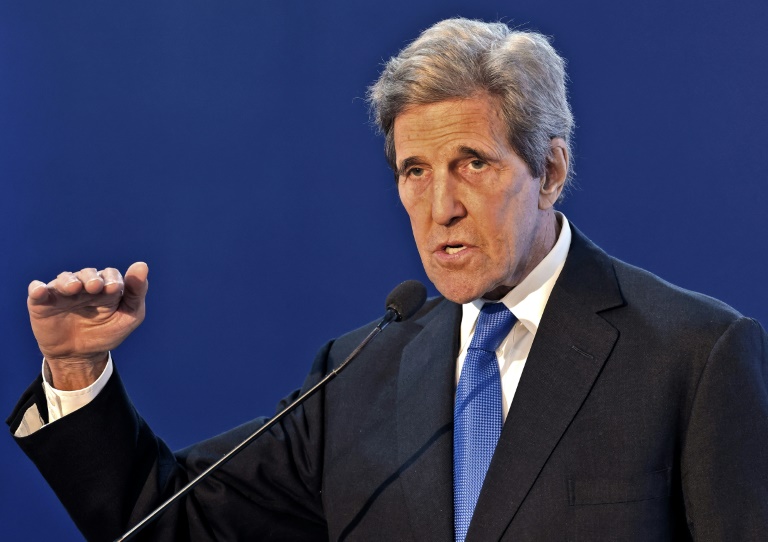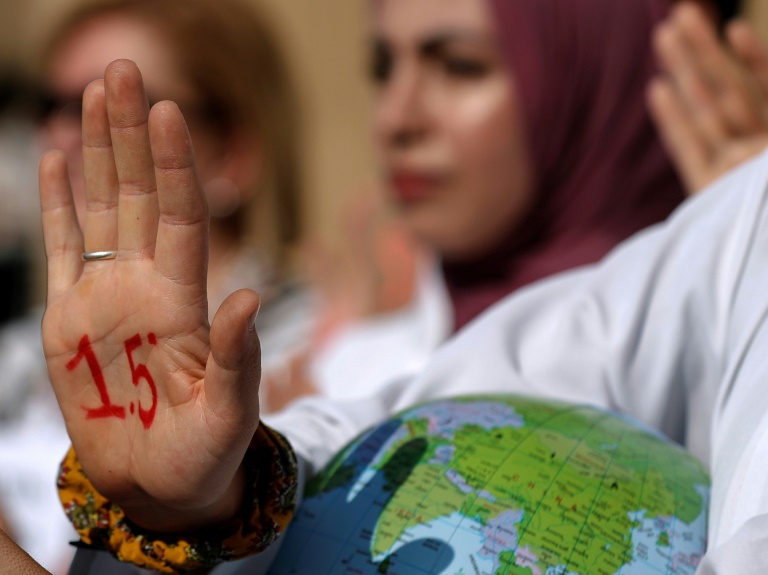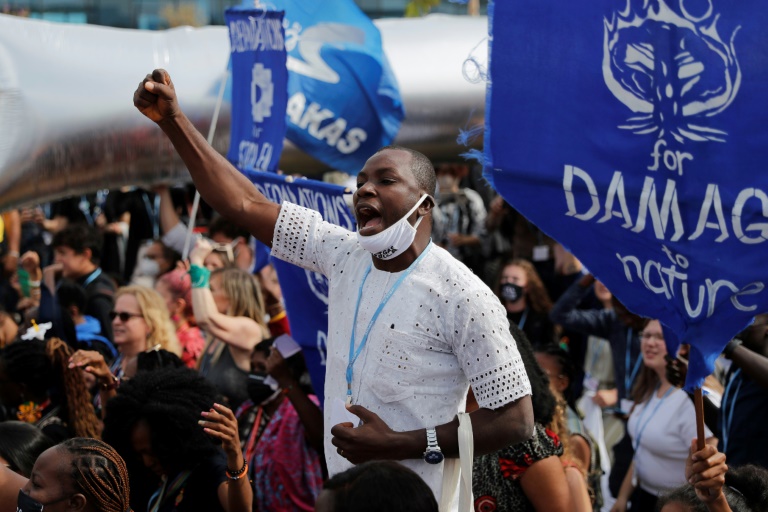US envoy urges Chinese cooperation on emissions cuts
Cooperation between the United States and China is key in the fight against global warming
US climate envoy John Kerry called on Beijing Sunday to “accelerate progress together” on reducing greenhouse gas emissions, following a meeting with his Chinese counterpart at COP27 in Egypt.
Kerry and Xie Zhenhua met during the UN summit in the Red Sea resort of Sharm el-Sheikh after US President Joe Biden and Chinese leader Xi Jinping agreed at a G20 summit in Indonesia last week to resume collaboration on fighting climate change.
Beijing suspended the talks in August in anger at US House Speaker Nancy Pelosi’s visit to Taiwan.
Cooperation between the superpowers is key in the fight against global warming and has led to breakthroughs at past UN climate conferences, notably the landmark 2015 Paris Agreement.
“The climate crisis is fundamentally a global, not a bilateral, issue,” Kerry said in a statement.
“The United States and China should be able to accelerate progress together, not only for our sake, but for future generations,” Kerry added.
“All nations have a stake in the choices China makes in this critical decade… We are all hopeful that China will live up to its global responsibility.”
Xie described his talks with Kerry as “candid, friendly, positive” and “overall very constructive”.
“We have agreed that after this COP we will continue formal conversations, including face-to-face meetings,” he told reporters on Saturday.
But he also highlighted lingering differences with Western nations, rejecting the idea that China should no longer be considered a developing country, though it is now the world’s second-biggest economy.
That distinction in status is key: Under the terms of a bedrock 1992 UN climate treaty, developed countries are supposed to financially help developing nations in their energy transitions and efforts to build resilience against climate impacts.
– ‘Major outcome’ –
The issue was at the heart of a contentious debate at COP27 on establishing a “loss and damage” fund to compensate poorer countries already devastated by the fallout from global warming.
Kerry called the landmark deal on funding to help vulnerable countries cope with devastating impacts of global warming “one of the major outcomes” of the conference.
The US envoy had tested positive for Covid-19 during the summit and was self-isolating when negotiations wrapped up on Sunday.
A final COP27 statement covering the broad array of efforts to grapple with a warming planet held the line on the aspirational goal of limiting global warming to 1.5 degrees Celsius from pre-industrial levels.
According to Kerry, this goal can be achieved by “implementing real projects and deploying real dollars to accelerate the energy transition”.
“Investment in clean energy and infrastructure will help countries deliver stronger climate ambition anywhere by driving down the cost of clean technologies.”
He said Washington and other governments were “stepping up” funding to support the green transition, noting several initiatives launched ahead of and during COP27.
Mexican Foreign Minister Marcelo Ebrard announced last week in Sharm el-Sheikh a $48 billion renewable energy investment scheme with the United States to strengthen emissions-cutting efforts.
Also during the summit, Kerry launched a partnership with private funds aimed at supporting the transition to renewable energy in developing nations, based on a carbon credit system.






